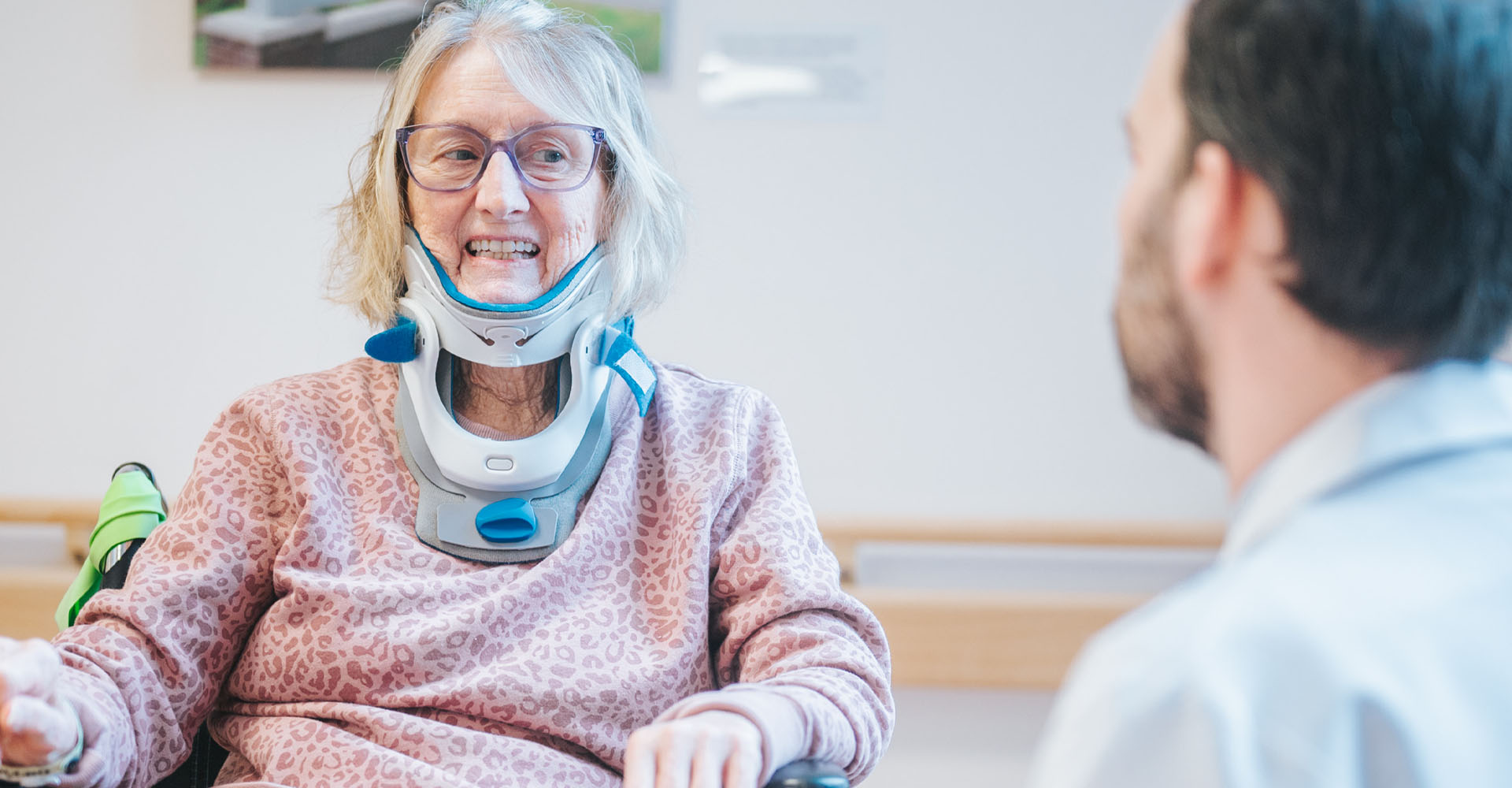MetroHealth established its new SCI Medical Home Clinic (SCI Medical Home) in September 2021 to help streamline the process for people with SCI and avoid miscommunication or missed opportunities for care. Most importantly, the clinic aims to provide a patient experience that is more comprehensive, coordinated, and team-based.
“After a spinal cord injury, patients require proactive and holistic preventative care,” says James Wilson, DO, MetroHealth’s Director of SCI Medicine and founder of the clinic. “But finding high-quality, convenient,and wheelchair-accessible care is not always simple.”
Dr. Wilson explains that the term “home” is a patient-centered philosophy that gives patients a home base or starting point for most or all of their medical needs. The model is one that’s often used for pediatric patients or in settings like the Veterans Affairs Health System. And it’s receiving positive feedback from patients and providers alike.
“Patients like having something oriented solely for them. We give them care centered around their daily realities. Some have said they didn’t have a primary care provider who understood their injury well,” Dr. Wilson explains. “For providers, we huddle each day and talk about a patient’s care more holistically. All in all, there’s been both coordination and clinical benefits.”
Dr. Wilson says the SCI Medical Home Clinic was a collaborative effort that’s been championed by a variety of providers.
“Many MetroHealth employees contributed to making this happen and continuing to make it successful for our SCI patients,” he says, “They all deserve credit.”
One Visit, Multiple Providers
The central piece of the new SCI Medical Home is an interdisciplinary annual clinic. In one yearly visit, SCI patients are cared for, back-to-back, by occupational and physical therapists, a primary care physician, a spinal cord specialist, and researchers who can connect them to the latest available SCI studies and treatment. The one-and-done appointments detect disease early, prevent complications, keep patients out of the emergency department, and save money.
“This is an example of providers being innovative and collaborative to improve the health of MetroHealth’s patients and how we’re improving care for those with disabilities,” says Richard Wilson, MD, Professor and Vice Chair of PM&R.
Continuing to Evolve
Recently, the clinic added a wound care specialist and social worker to their model, and future plans include possible expansion to include urology, and nutrition services. Many people with SCI use catheters and are at a high risk for obesity or other metabolic issues.Dr. Wilson says that because MetroHealth is used to providing care to under- and uninsured individuals, it is in a prime position to provide the clinic in a way that is financial sustainable. He’s hopeful the clinic will provide even more dividends in terms of research.
“We’re tracking outcomes and hope what we learn will lead to more projects—innovation sparking innovation,”he says. “PM&R residents and SCI Medicine fellows are also integrated into the medical home service model, helping ensure the next generation of SCI clinicians deliver the highest level of care.”











